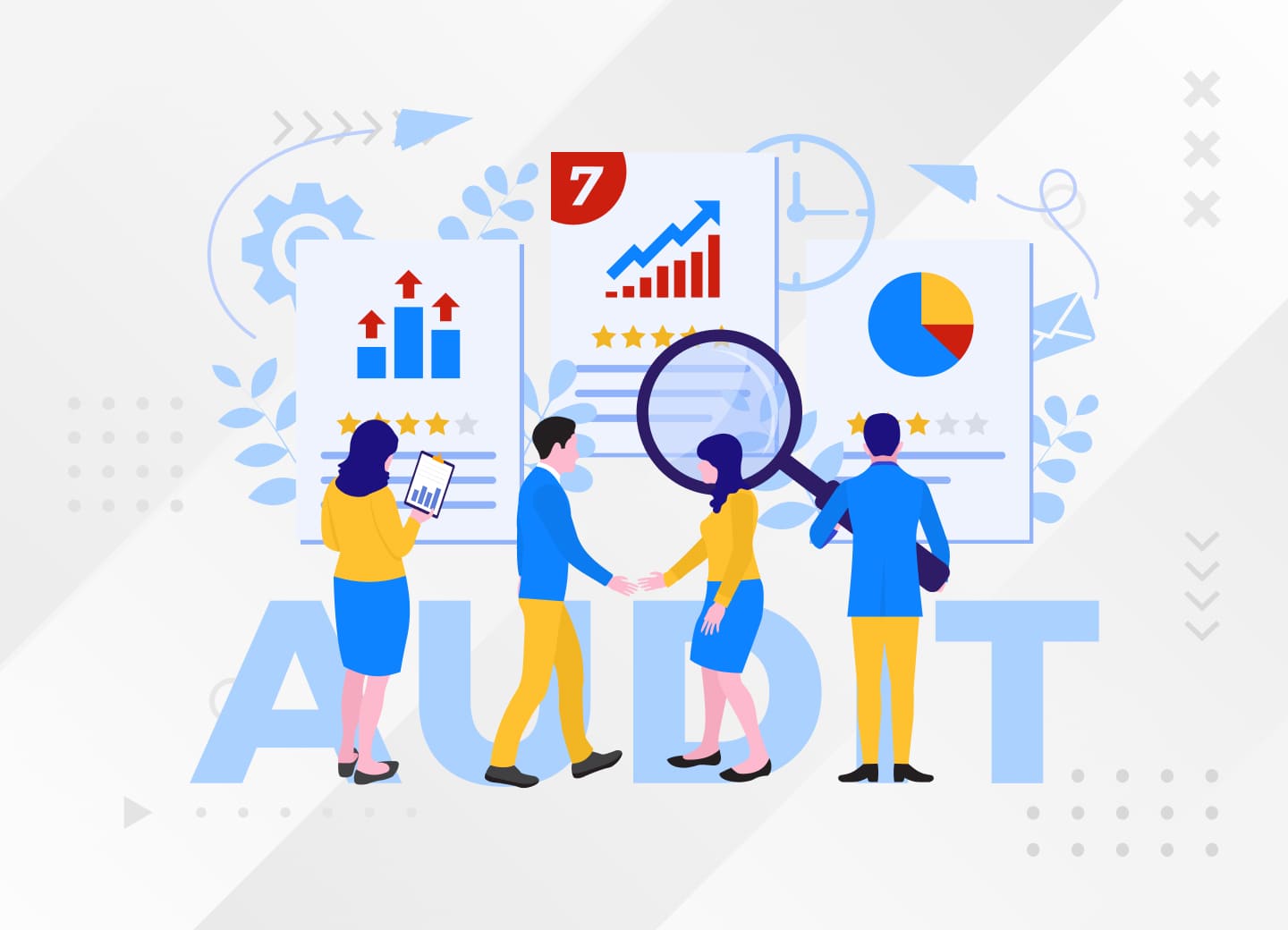Website Maintenance: An Ongoing Cycle Essential for Business Success
Understanding the significance of website maintenance is an essential part of running an online business. It’s not a one-off task but an ongoing cycle that continually fuels your growth and ensures the stability of your digital platform. If neglected, it could create obstacles that hamper your growth and overall business health.
Ensuring the robust health of your website requires a keen sense of awareness and meticulous organization. This becomes more crucial if you’re managing a large website with hundreds or even thousands of pages.
The advent of user-friendly tools has simplified website building and allowed sites to expand exponentially each year. While adding pages to websites has become more accessible, maintaining the quality and functionality of these pages demands a higher level of attention.
To put it simply, consistency is key in website maintenance.

The Imperative of Regular Website Maintenance
New businesses, already overwhelmed with numerous tasks, might be tempted to ignore their websites’ ongoing needs. It may seem easier to purchase a domain name, put up a placeholder site, and put off a comprehensive website strategy until later. But this approach could be more costly in the long run.
Keeping a website current, healthy, and active plays a vital role for several compelling reasons. Regularly updating your website, particularly one created with WordPress, not only boosts its performance but also contributes positively to its SEO and user experience. Plus, it enables you to engage with your audience in a more effective and meaningful way.

Enhancing Your Corporate Image
In today’s digital world, creating a well-designed, professional-looking website has never been easier. Customers now anticipate a high level of professionalism from corporate websites. If your website doesn’t meet these expectations, you risk losing potential business to your competitors. Therefore, regular website maintenance isn’t just an optional task; it’s an integral component of your company’s image and reputation.

Preserving Your Peace of Mind
Consider your website as a vital component of your business machinery. When it’s up-to-date and functioning seamlessly, it can be a powerful asset, contributing to your success. However, if it falls into disrepair, the opposite can be true—it can become a liability, costing you significantly in lost opportunities and recovery efforts.
Catching up on overdue website maintenance can be a daunting task, especially if it has been overlooked for a considerable time. Sometimes, it might seem easier to start from scratch rather than fixing an extensively neglected website.

Stay Ahead with the Latest Design and Technological Innovations
Maintaining a sleek, modern website can be a decisive factor in convincing potential customers that your business is their best choice. Regular website maintenance opens up the opportunity to leverage the newest web technologies, enhancing not just the front-end user experience but also the back-end operations.
By ensuring timely software updates, you’ll gain access to new features and improvements that come along with these updates, further enhancing your site’s functionality and user engagement.
Keeping up with evolving design trends is equally important. Regular updates allow you to adapt your website’s look and feel to reflect contemporary aesthetics, helping your business stand out. Remember, a company with a polished, up-to-date website is much more likely to attract and retain customers than one with an outdated, early 2000s look. Regular website maintenance is key to staying relevant and competitive in today’s dynamic digital landscape.

Optimal Website Performance: Speed and Content Freshness
In the digital world, every second counts. A quick-loading website is not just a nicety; it’s a necessity for keeping visitors engaged. Slow load times can lead to high bounce rates as users are likely to leave a site that makes them wait. By maintaining your website regularly, you can ensure it loads quickly, providing a seamless and enjoyable experience for your users.
Just as important as speed is the freshness of your content. Internet users demand the latest and most relevant information. Outdated or irrelevant content can erode trust and diminish your website’s credibility. Regular updates ensure your content stays current and relevant, meeting the expectations of your users and maintaining their interest. After all, providing users with an efficient, up-to-date, and engaging website experience respects their valuable time and encourages them to interact more with your site.

Security in the Age of Cyber Threats
In today’s digital landscape, cybersecurity is paramount. With the rise of Distributed Denial of Service (DDoS) attacks, ransomware, and malicious AI-driven bots, maintaining the security of your website is more crucial than ever, especially if it houses sensitive customer data. Using website-building platforms such as WordPress or Wix adds another layer of responsibility, as these platforms necessitate regular software updates and security patches.
Neglected websites make for tempting targets for cybercriminals. They exploit vulnerabilities in outdated systems, breach security walls, and cause havoc. Therefore, staying vigilant and proactively managing website maintenance is key. Regular updates and patches fortify your site’s defenses, making it harder for hackers to infiltrate. Remember, a secure website not only safeguards your business but also bolsters your customers’ trust in your online presence.

Embracing the Power of Analytics as Part of Best Practices
Incorporating the robust insights offered by analytics is one of our highly recommended best practices to enhance your website maintenance strategy. The aesthetic appeal and engaging content of your website might be striking, but they can’t drive your key KPIs effectively without the analytical backing.
By thoroughly examining your engagement metrics, you can pinpoint and rectify any troubling patterns. For instance, if a specific page, despite attracting considerable traffic, isn’t generating conversions or if visitors’ average dwell time is low, it may suggest a hitch in your site or perhaps a less than optimal user experience.
Embedding analytics into your maintenance routine offers an informed starting point to identify which pages require optimization. We suggest that while making updates to your pages, you should not rely solely on analytics. However, gaining a data-driven understanding of your page’s performance can guide your focus towards areas necessitating further examination.
Google Analytics, when harnessed effectively, allows you to set up views and filters that streamline your tracking process, making the deluge of data more digestible. Customizing your reports to track metrics that align with your business goals can yield valuable insights, thus supporting your website optimization efforts in line with your maintenance routine.

Embrace the Customer Perspective as Part of Your Website Maintenance
One of the fundamental aspects of website maintenance revolves around the user experience. To truly optimize it, you need to step into the shoes of your customers. Navigating your website as if you were a customer allows you to detect any potential barriers that might impede a conversion.
As part of your maintenance routine, test all forms on your site and meticulously check every internal and external link. You want to ensure you’re not directing your users to the dreaded “404 Not Found” page, which can be a significant deterrent. After this initial assessment, return to your homepage and go through the entire user journey, paying close attention to your key conversion actions – be they sales, demo requests, or any other specific user activity.
Ask yourself: Is the user journey intuitive? Is it overly complicated? Are there gaps in the information provided? Seeing your website from a user’s viewpoint allows you to unearth issues that might otherwise go unnoticed. In doing so, you gain a strategic advantage in proactively resolving these issues, thereby streamlining the user experience – a key aspect of effective website maintenance.

Incorporate Formal Usability Testing into Your Website Maintenance
While formal usability testing doesn’t need to be part of your monthly or quarterly maintenance, it’s vital to include it in your yearly website upkeep. This testing should ideally be conducted by individuals not directly linked to your brand, leveraging their fresh perspectives to spot potential issues that may have been missed.
By inviting actual users to navigate your site, you unlock a wealth of information on what elements of your site are effective and what needs improvement. Besides general usability, be sure to include accessibility testing. With one in four U.S. adults living with a disability, it’s crucial to ensure your site is as accessible and user-friendly to them as it is to the rest of the population.
Website maintenance does require effort, and it may seem like a task outside of your comfort zone initially. However, investing the time and energy to become proficient in website maintenance will significantly enhance your site’s visibility to potential customers and elevate your overall brand messaging. Make website maintenance a priority, and you’ll ensure your website not only performs better but also provides an optimally tailored experience for all users.






